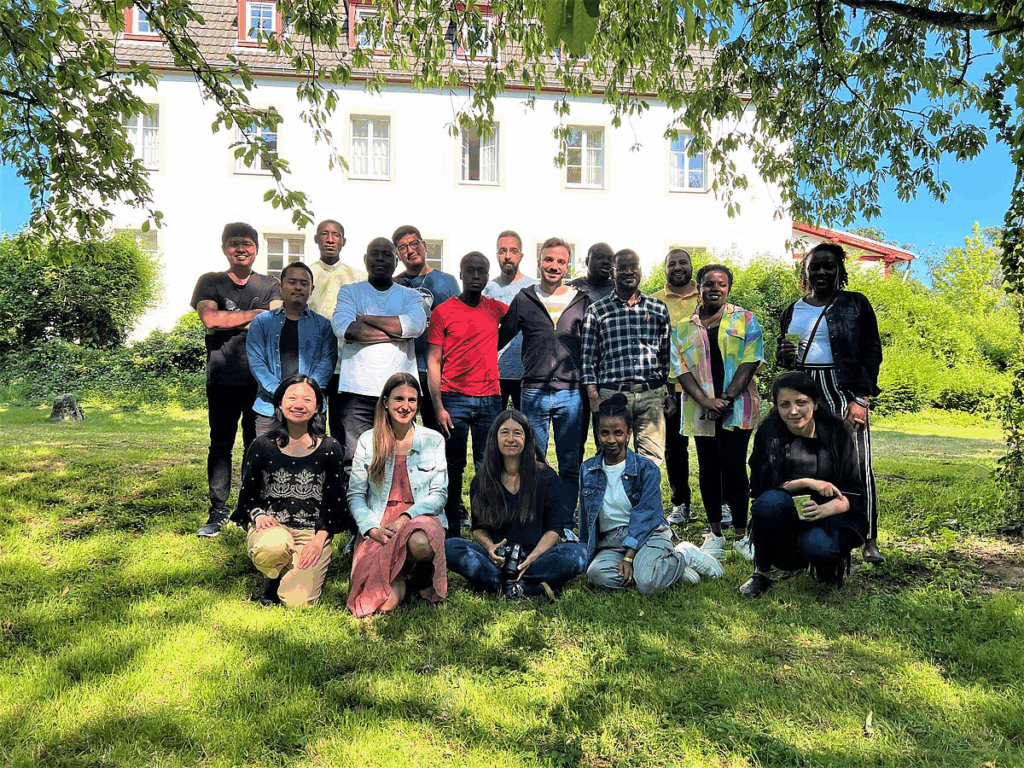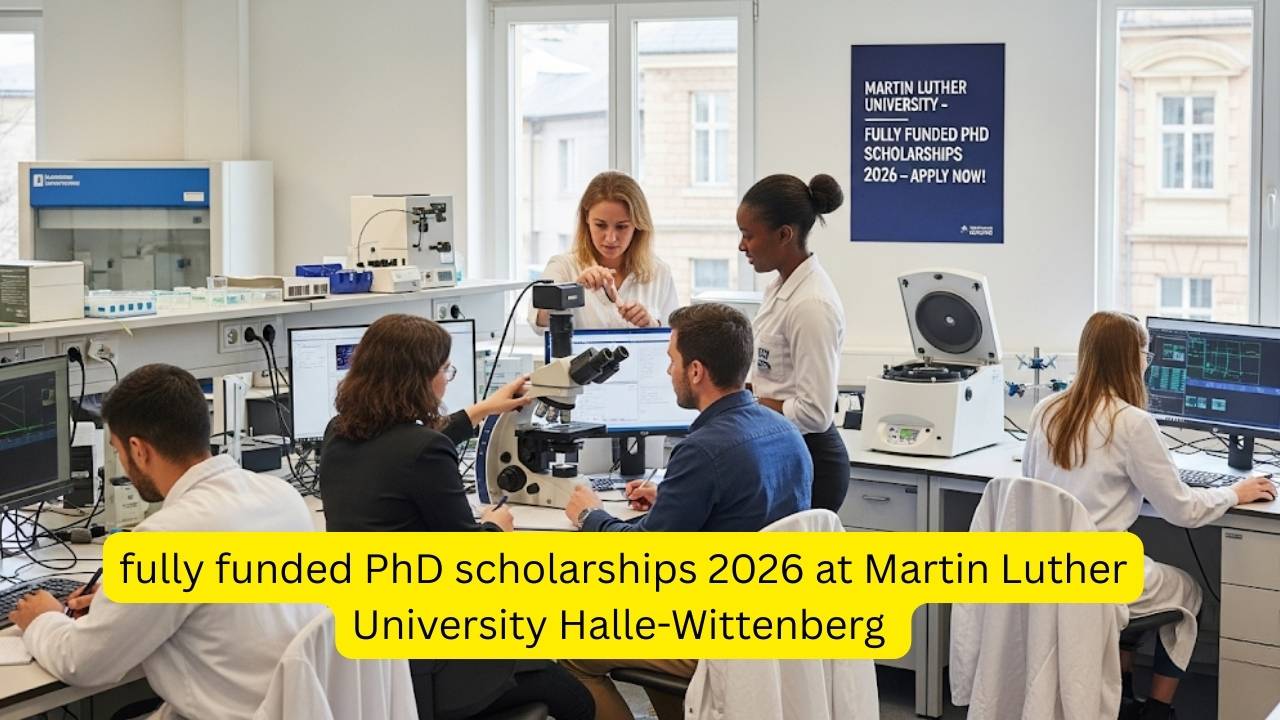Embarking on the journey to secure a fully-funded KAAD Scholarship 2025 to study in Germany can feel like standing at the base of a magnificent mountain – the peak represents your academic dreams, and the path to the top, while exciting, can seem intricate. You’re not just looking for a scholarship; you’re seeking a transformative experience that will shape your future and empower you to make a difference in your home country. This guide is designed to be your trusted companion on this ascent, providing clear, actionable steps and encouraging insights to help you navigate the application process with confidence.

For years, I’ve advised aspiring scholars, and I’ve seen how the right guidance can turn a daunting application into a successful one. This article is more than just a list of requirements; it’s a roadmap to help you present your unique story and potential to the KAAD selection committee.
Fully-funded KAAD Scholarship 2025 to study in Germany
For those who appreciate a quick overview, here’s a snapshot of what the KAAD Scholarship program entails:
| Key Fact | Detail/Statistic |
| Funding | Comprehensive financial support including tuition, living stipend, travel grants, and health insurance. |
| Eligible Degrees | Master’s, PhD, and Postdoctoral research at German universities. |
| Key Deadline | The general application deadline for Programme 1 is June 30, 2025. |
| Language | German language proficiency is an advantage, but language courses are provided. |
| Core Value | Strong emphasis on returning to your home country to contribute to its development. |
The fully-funded KAAD Scholarships 2025 to study in Germany offer a unique and profound opportunity for personal and academic growth. It’s a call to future leaders, researchers, and changemakers who are ready to invest in their education to uplift their communities.
The application process requires dedication and thoughtful preparation, but the reward—a world-class education in a supportive, value-driven community—is immeasurable. Begin by exploring the official KAAD resources, reflecting on your own goals, and taking that first step by filling out the initial questionnaire. Your journey to Germany and back to a future of impact starts today.
Understanding the Heart of the KAAD Scholarship
The Katholischer Akademischer Ausländer-Dienst (KAAD), or the Catholic Academic Exchange Service, is more than just a funding body. It is the scholarship institution of the Catholic Church in Germany, deeply rooted in principles of academic excellence, intercultural dialogue, and a commitment to global development. This scholarship is designed for promising individuals from developing and emerging countries in Africa, Asia, the Middle East, and Latin America who are not only academically gifted but also possess a strong desire to enact positive change in their home communities.
As the KAAD President, Fr. Dr. Hans Langendörfer SJ, highlighted in the organization’s annual report, they aim to “accompany individuals who bring with them not only knowledge and education, but also an attitude of responsibility.” This ethos is central to the selection process.

Are You the Candidate KAAD is Looking For?
While the formal eligibility criteria are detailed below, it’s crucial to first understand the spirit of the scholarship. Successful applicants typically demonstrate a blend of academic prowess and a deep-seated commitment to social and religious engagement.
Core Eligibility for the Main Scholarship Programme (Programme 1)
This program is for applicants who are applying from their home country. The key requirements include:
- Citizenship and Residency: You must be a citizen of and currently reside in an eligible developing or emerging country in Africa, Asia, the Middle East, or Latin America.
- Academic Background: You need to have completed a university degree and have some professional experience in your field.
- Study Plans: Your intention must be to pursue a Master’s degree, a PhD, or a postdoctoral research project at a German university.
- Religious Affiliation: Preference is given to candidates of the Catholic denomination. However, applications from individuals of other Christian denominations are explicitly welcomed. Applicants of other faiths may also be considered if they are recommended by Catholic partners and demonstrate a commitment to interreligious dialogue.
- German Language Skills: While not always a prerequisite for application, a willingness to learn German is essential. The KAAD often provides funding for a German language course of up to six months before your studies begin.
- Age Limits: Generally, applicants for a Master’s degree should be no older than 30, and for a PhD, no older than 35.
It’s important to note that KAAD also offers other specialized programs, including one for students already studying in Germany (Programme 2) and the Eastern Europe Programme. Always check the specific requirements for the program that fits your profile on the official KAAD website.
Your Step-by-Step Guide to a Successful Application
Navigating the application process can be straightforward if you approach it systematically. Here’s a breakdown of the key stages:
Step 1: The Initial Inquiry and Questionnaire
Your journey begins not with a full application, but with an initial inquiry. You will need to fill out a questionnaire on the KAAD application portal. This pre-application step allows the KAAD team to assess your basic eligibility and provide initial guidance.
Step 2: Connecting with Your Local Partner Committee
KAAD works closely with partner committees in many countries. These committees, often composed of alumni and local academics, play a crucial role in the selection process. They provide information, and conduct initial screenings and interviews. You can find a list of partner committees in Asia and other regions on the KAAD website. Engaging with your local committee is a vital step and shows your proactive approach.
Here is a relevant post from the KAAD in Asia network about their activities.
Step 3: Assembling Your Application Documents
Once you are invited to submit a full application, you will need to prepare a comprehensive set of documents. While the exact list can vary, you should be ready to provide:
- Completed application form
- Detailed Curriculum Vitae (CV)
- Letters of recommendation (usually two) from university professors or employers
- A compelling letter of motivation
- Certified copies of your academic transcripts and degree certificates
- Proof of German language proficiency (if applicable)
- A detailed research proposal (for PhD and postdoctoral applicants)
In my experience advising students, the letter of motivation and research proposal are where many successful applicants truly shine. These documents are your opportunity to articulate not just what you want to study, but why your studies are important for your home country’s development.
Step 4: The Selection Process
After submitting your application through the partner committee, it will be forwarded to the central selection committee in Germany. This committee, comprised of academics and church representatives, makes the final decision. The selection is based on your academic qualifications, your potential for leadership, and your commitment to the values of KAAD.
What Does “Fully-Funded” Truly Mean?
The KAAD scholarship is designed to allow you to focus entirely on your studies and personal development without financial worry. The funding package is comprehensive and typically includes:
- Tuition Fees: Full coverage of tuition fees at your German university.
- Living Stipend: A monthly allowance to cover your living expenses, including accommodation and food.
- Travel Costs: A grant to cover your travel to Germany and your return journey home after completing your studies.
- Health Insurance: Comprehensive health insurance coverage for the duration of your stay.
- Language Course: Funding for an intensive German language course in Germany before your academic program begins.
Beyond the financial support, being a KAAD scholar means becoming part of a global network of academics and professionals. You will have access to seminars, workshops, and spiritual retreats that will enrich your experience and connect you with peers from around the world.
This sense of community is often what scholars cherish most. Imagine discussing your research with a fellow scholar from another continent at a KAAD summer school.

Life as a KAAD Scholar in Germany
Studying in Germany is an adventure in itself. You’ll be immersed in a country known for its rich history, vibrant culture, and world-class education system. From the historic lecture halls of Heidelberg to the modern research labs of Munich, you will have the opportunity to learn from leading experts in your field.
The KAAD experience is designed to help you integrate into German society while also preparing you for your eventual return home. The challenges of adapting to a new culture are real, but the support system provided by KAAD helps you navigate them. As one alumna from Colombia, Diana Cárdenas, shared about her experience which led to a position as a research project manager, “The tools provided during the master program let me to formulate strategies based on market research, strategic thinking and planning in my current position.”
20 Fully Funded MS PhD Scholarships (2026–2027 Intake) With Monthly Stipend to Study Abroad for Free
FAQs
Q1:Can I apply if I am not Catholic?
Yes. While preference is given to Catholic applicants, students from other Christian denominations are strongly encouraged to apply. Applicants from other religions are also eligible if they are supported by Catholic partners and show a commitment to interreligious dialogue.
Q2:Is prior knowledge of German mandatory?
For most programs, it is not a strict requirement for the initial application. However, demonstrating a willingness to learn is crucial. KAAD provides funding for language courses to help you achieve the necessary proficiency before your studies.
Q3:What are the most important parts of the application?
Beyond meeting the academic requirements, a strong letter of motivation that clearly connects your study plans to the future development of your home country is vital. For research-focused degrees, a well-defined and relevant research proposal is also critical.










